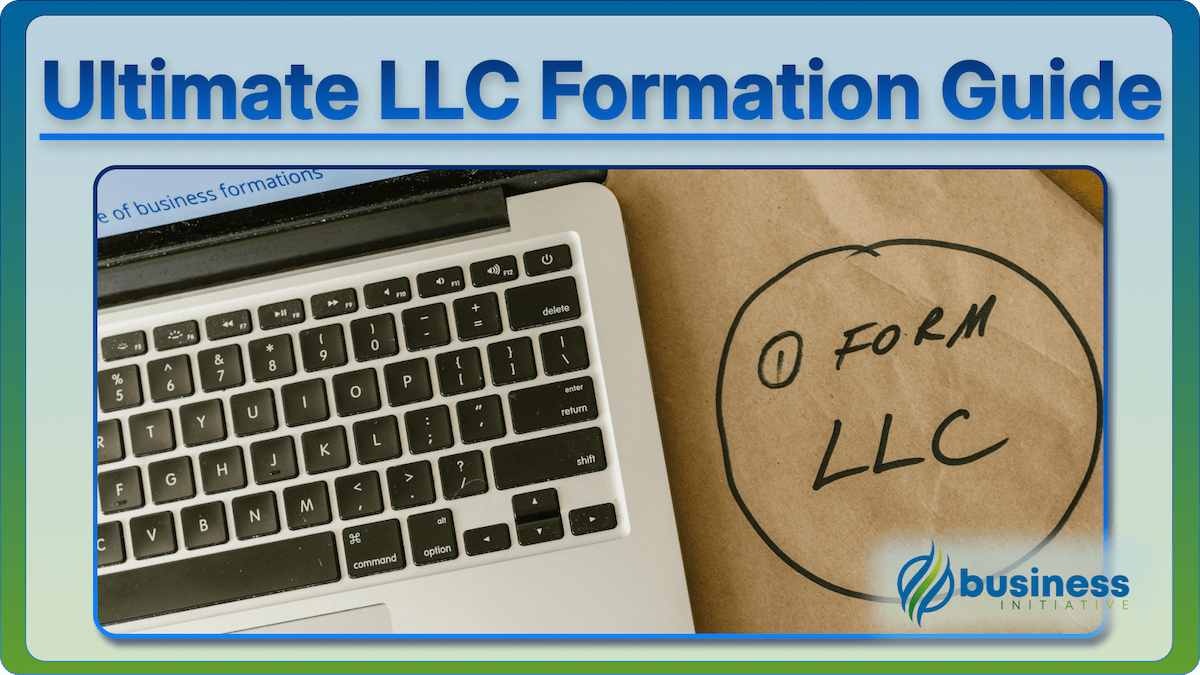You’ve budgeted for equipment, rent, and inventory, but you’re missing hidden costs. Permits you didn’t know you needed. Refunds and chargebacks that drain cash. Fees that appear after you’ve already committed. These hidden costs surprise you when cash is tight, which can kill your business before it gets started.
Hidden cost awareness solves this by revealing expenses that most blogs don’t mention. It shows you permits, refunds, chargebacks, and other overlooked costs that drain startup cash. This awareness helps you plan for reality, not just the obvious expenses, which prevents budget surprises.
This guide provides a candid breakdown of hidden startup costs, showing you overlooked categories that drain cash but rarely appear in cost estimates.
We’ll explore permits and licenses, refunds and chargebacks, fees and charges, and other hidden costs that surprise entrepreneurs. By the end, you’ll understand all the costs you’ll actually face, not just the ones that are easy to see.
 Key Takeaways
Key Takeaways
- Identify hidden costs—find overlooked expenses like permits, refunds, and chargebacks
- Research local requirements—discover permit and license costs specific to your location and business type
- Plan for refunds—budget for customer refunds and chargebacks that drain cash
- Account for fees—include transaction fees, processing fees, and other charges in your budget
- Build complete budget—create a budget that includes hidden costs, not just obvious expenses
 Table of Contents
Table of Contents

Why Hidden Costs Matter
Hidden costs surprise you when cash is tight. You’ve budgeted for obvious expenses, but permits, refunds, and fees drain cash you thought was available. This surprise creates cash shortfalls that can kill your business before revenue starts.
Hidden costs matter because they’re often significant. Permits can cost thousands. Refunds and chargebacks can drain 5-10% of revenue. Fees add up across multiple transactions. These costs are easy to overlook but hard to ignore when they hit. Understanding them helps you plan for reality.
The reality: Many entrepreneurs discover hidden costs only when they’re due. They’ve already committed to a budget, and these costs create shortfalls. Awareness of hidden costs helps you budget accurately from the start, which prevents surprises and cash crises.
Permits and Licenses
Permits and licenses are among the most overlooked startup costs. They vary by location and business type, and they’re often more expensive and complex than expected.
Business Licenses
What you’ll pay:
- General business license ($50-$500+)
- Professional licenses for regulated industries ($200-$5,000+)
- Industry-specific licenses ($100-$10,000+)
- Annual renewal fees ($50-$2,000+)
- Late fees if you miss deadlines ($25-$500+)
Why this matters: Business licenses are required but often underestimated. Costs vary significantly by location and business type, and renewal fees are ongoing. Understanding these costs helps you budget for proper licensing from the start.
Zoning and Use Permits
What you’ll pay:
- Zoning permit applications ($100-$1,000+)
- Use permit fees ($200-$2,000+)
- Conditional use permits ($500-$5,000+)
- Variance applications ($300-$3,000+)
- Planning and review fees ($200-$2,000+)
Why this matters: Zoning and use permits are required for physical locations but often overlooked. Costs vary by location and can be substantial, especially for non-standard uses. Understanding these costs helps you budget for location setup.
Health and Safety Permits
What you’ll pay:
- Health department permits ($100-$2,000+)
- Fire department inspections and permits ($50-$1,000+)
- Building code compliance ($200-$5,000+)
- Safety inspections ($100-$1,000+)
- Annual renewal fees ($50-$1,000+)
Why this matters: Health and safety permits are required for many businesses but often forgotten. Restaurant and retail businesses face especially high costs. Understanding these requirements helps you budget for compliance.
Environmental and Special Permits
What you’ll pay:
- Environmental permits ($200-$10,000+)
- Sign permits ($50-$500+)
- Parking and traffic permits ($100-$2,000+)
- Special event permits ($25-$500+)
- Waste disposal permits ($50-$1,000+)
Why this matters: Special permits add up quickly and are easy to overlook. If your business has environmental impact, signage, or special requirements, these permits are necessary but expensive. Understanding them helps you budget accurately.
Pro tip: Research permit requirements for your specific location and business type before finalizing your budget. Contact local government offices to get actual costs, as these vary significantly and are often higher than expected. This research prevents budget surprises.

Refunds and Chargebacks
Refunds and chargebacks drain cash from revenue businesses. Understanding these costs helps you budget for the reality of customer returns and disputes.
Customer Refunds
What you’ll pay:
- Product return processing ($5-$50 per return)
- Refunded revenue (100% of sale price)
- Restocking fees and inventory losses ($10-$100+ per return)
- Shipping costs for returns ($5-$30+ per return)
- Customer service time for refund processing
Why this matters: Refunds reduce revenue and add processing costs. If 10% of sales are refunded, that’s 10% of revenue lost plus processing costs. Understanding refund rates helps you budget for actual net revenue, not gross sales.
Credit Card Chargebacks
What you’ll pay:
- Chargeback fees ($15-$100+ per chargeback)
- Lost revenue from disputed transactions
- Time and resources to dispute chargebacks
- Potential account holds or terminations
- Higher processing fees if chargeback rates are high
Why this matters: Chargebacks are expensive and can be frequent, especially for online businesses. Fees are high, and you lose revenue even if you win disputes. Understanding chargeback risks helps you budget for these costs and implement prevention strategies.
Return Shipping and Processing
What you’ll pay:
- Return shipping labels ($5-$30+ per return)
- Processing and handling fees ($2-$20+ per return)
- Inventory inspection and restocking ($5-$50+ per return)
- Lost or damaged inventory from returns
- Customer service costs for return processing
Why this matters: Return processing adds significant costs beyond just refunding revenue. Shipping, handling, and inventory losses can make returns very expensive. Understanding these costs helps you budget for the true cost of returns.
Pro tip: Research typical refund and chargeback rates for your industry. E-commerce businesses often see 5-15% return rates, and chargeback rates vary by business type. Use these rates to budget for actual net revenue, not gross sales.
Fees and Charges
Fees and charges add up across transactions and services. Understanding these costs helps you budget for the true cost of doing business.
Payment Processing Fees
What you’ll pay:
- Transaction fees (2-3% of each sale)
- Monthly gateway fees ($10-$50+)
- Chargeback fees ($15-$100+ per chargeback)
- International transaction fees (additional 1-2%)
- Setup and account fees ($0-$500+)
Why this matters: Payment processing fees reduce revenue on every transaction. If you process $100,000 in sales, fees might be $2,000-$3,000. These fees are necessary but reduce net revenue. Understanding them helps you budget for actual revenue after fees.
Banking and Financial Fees
What you’ll pay:
- Business account fees ($10-$50+ monthly)
- Transaction fees ($0.25-$1.00+ per transaction)
- Wire transfer fees ($15-$50+ per transfer)
- Overdraft fees ($25-$50+ per occurrence)
- Account maintenance fees ($5-$25+ monthly)
Why this matters: Banking fees add up, especially with high transaction volumes. Business accounts often have higher fees than personal accounts, and transaction fees can be significant. Understanding these costs helps you budget for banking expenses.
Software and Service Fees
What you’ll pay:
- Setup fees for services ($0-$500+)
- Monthly or annual subscription fees
- Per-user or per-transaction fees
- Overage fees for exceeding limits
- Cancellation or early termination fees
Why this matters: Software and service fees are often underestimated. Setup fees, per-transaction fees, and overages can add significantly to subscription costs. Understanding these fees helps you budget for true software costs.
Professional Service Fees
What you’ll pay:
- Legal consultation fees ($150-$500+ per hour)
- Accounting setup and ongoing fees ($500-$5,000+)
- Consulting fees for specialized advice
- Retainer fees for ongoing services
- Rush or expedited service fees
Why this matters: Professional service fees are necessary but often higher than expected. Legal and accounting services are essential but expensive. Understanding these costs helps you budget for proper professional support.
Pro tip: Read the fine print on all service agreements to understand fees. Setup fees, transaction fees, and overages can make services much more expensive than advertised prices. This research helps you budget for actual costs.

Other Hidden Costs
Other hidden costs surprise entrepreneurs in various ways. Understanding these costs helps you build a complete budget.
Insurance Costs
What you’ll pay:
- General liability insurance ($500-$5,000+ annually)
- Professional liability insurance ($1,000-$10,000+ annually)
- Property insurance ($500-$5,000+ annually)
- Workers’ compensation ($1,000-$10,000+ annually if applicable)
- Business interruption insurance ($500-$3,000+ annually)
Why this matters: Insurance costs are necessary but often underestimated. Different business types require different insurance, and costs vary significantly. Understanding these requirements helps you budget for proper coverage.
Tax and Compliance Costs
What you’ll pay:
- Tax preparation fees ($500-$5,000+ annually)
- Quarterly tax payments and penalties if missed
- Compliance consulting ($500-$3,000+ annually)
- Audit defense costs if audited
- State and local tax obligations
Why this matters: Tax and compliance costs are ongoing and can be significant. Professional tax preparation is often necessary, and missed payments create penalties. Understanding these costs helps you budget for proper compliance.
Marketing and Customer Acquisition Costs
What you’ll pay:
- Customer acquisition costs beyond initial campaigns
- Ongoing marketing to maintain visibility
- Content creation and materials
- Public relations and outreach
- Brand development and rebranding
Why this matters: Marketing costs are often underestimated beyond initial campaigns. Ongoing marketing is necessary to maintain visibility and acquire customers. Understanding these ongoing costs helps you budget for sustained marketing efforts.
Operational Surprises
What you’ll pay:
- Equipment repairs and maintenance
- Unexpected utility or service increases
- Emergency repairs or replacements
- Compliance updates and changes
- Market condition adjustments
Why this matters: Operational surprises are inevitable but hard to predict. Equipment breaks, costs increase, and compliance requirements change. Building buffers for these surprises helps your budget survive unexpected challenges.
Building Complete Budget
A complete budget includes hidden costs, not just obvious expenses. Building this budget requires research, awareness, and buffers for surprises.
Researching Hidden Costs
Find what you’ll actually pay:
- Research permit and license costs for your location and business type
- Understand refund and chargeback rates for your industry
- Calculate payment processing and banking fees
- Identify all insurance and compliance requirements
- Talk to other entrepreneurs about hidden costs they faced
Why this matters: Research prevents budget surprises. If you research hidden costs before building your budget, you can include them from the start. This research improves budget accuracy significantly.
Building in Contingency
Plan for surprises:
- Add 20-30% buffer for hidden costs you might miss
- Build contingency for unexpected fees and charges
- Plan for refund and chargeback reserves
- Account for cost increases over time
- Maintain emergency fund for surprises
Why this matters: Contingency protects your budget from hidden costs you didn’t anticipate. Even with research, some costs will surprise you. Buffers provide protection against these surprises.
Validating with Experts
Get professional input:
- Consult with accountants about tax and compliance costs
- Talk to lawyers about permit and license requirements
- Discuss with insurance agents about coverage needs
- Get input from experienced entrepreneurs in your industry
- Validate your budget with advisors or mentors
Why this matters: Expert validation catches hidden costs you might miss. Professionals who work with startups daily know common hidden costs. This validation improves budget completeness.
Pro tip: Use our Startup Cost Calculator to build a comprehensive budget. Include hidden costs in your calculations to see total startup expenses with all fees, permits, and charges included. This comprehensive view helps you plan for adequate funding.
Your Next Steps
Hidden costs surprise you when cash is tight. Research permits, refunds, fees, and other hidden costs, then build them into your budget to prevent surprises.
This Week:
- Research permit and license costs for your location and business type
- Understand refund and chargeback rates for your industry
- Calculate payment processing, banking, and service fees
- Identify insurance and compliance costs you’ll face
This Month:
- Build hidden costs into your startup budget
- Add contingency buffers for costs you might miss
- Validate your budget with experts and experienced entrepreneurs
- Ensure your budget includes all costs, not just obvious expenses
Going Forward:
- Track actual hidden costs as you encounter them
- Update your budget based on real experience
- Share learnings with other entrepreneurs
- Build hidden cost awareness into all business planning
Need help? Check out our Startup Cost Calculator for comprehensive cost estimation, our startup cost checklist for identifying all expenses, and our reality-based budget guide for building budgets that survive challenges.
Stay informed about business strategies and tools by following us on X (Twitter) and signing up for The Initiative Newsletter.
FAQs - Frequently Asked Questions About Hidden Startup Costs You Won

What are the most commonly overlooked startup permit and license costs?
Business licenses ($50-$500+), zoning permits ($100-$5,000+), health and safety permits ($50-$2,000+), and environmental or sign permits ($50-$10,000+) are frequently missed.
Learn More...
General business licenses range from $50 to $500+, but professional and industry-specific licenses can run $200 to $10,000+ depending on your field.
Zoning and conditional use permits ($100-$5,000+) are required for physical locations but often completely overlooked in startup budgets.
Health department permits, fire inspections, and building code compliance can add $100 to $5,000+ for restaurants and retail businesses.
Annual renewal fees ($50-$2,000+) make these ongoing costs, not just one-time expenses.
How much should I budget for customer refunds and chargebacks as a new business?
Budget for 5-15% of revenue being lost to returns, plus $15-$100 per chargeback fee. E-commerce businesses typically see the highest rates.
Learn More...
Customer refunds mean losing 100% of the sale price plus $5-$50 in return processing costs, restocking fees, and return shipping.
Credit card chargebacks cost $15-$100 per incident in fees alone, plus you lose the disputed revenue and spend time fighting disputes.
High chargeback rates can lead to higher processing fees or even account termination by your payment processor.
Budget for actual net revenue, not gross sales. If you expect $100,000 in sales with a 10% return rate, budget based on $90,000 minus processing costs.
What payment processing and banking fees do most startup budgets underestimate?
Transaction fees of 2-3% per sale, monthly gateway fees of $10-$50, business account fees, wire transfer charges, and overdraft penalties add up quickly.
Learn More...
Payment processing fees reduce every transaction by 2-3%, so $100,000 in sales means $2,000-$3,000 in processing fees alone.
International transactions add another 1-2% per transaction, and monthly gateway fees run $10-$50+.
Business banking accounts charge monthly fees ($10-$50+), per-transaction fees ($0.25-$1.00+), and wire transfer fees ($15-$50+).
Software and service fees are also underestimated. Setup fees, per-user charges, overages, and early termination penalties make tools much more expensive than listed prices.
What insurance costs do startups typically fail to plan for?
General liability ($500-$5,000/year), professional liability ($1,000-$10,000/year), property insurance, workers compensation, and business interruption coverage.
Learn More...
General liability insurance ($500-$5,000+ annually) is required by many landlords and clients, not just a nice-to-have.
Professional liability insurance ($1,000-$10,000+ annually) is essential for service-based businesses to protect against claims.
Workers compensation ($1,000-$10,000+ annually) becomes mandatory once you hire employees in most states.
Business interruption insurance ($500-$3,000+ annually) protects revenue if you cannot operate due to disasters or emergencies.
How much contingency buffer should I add to my startup budget for hidden costs?
Add a 20-30% buffer on top of your calculated budget to cover hidden costs you might miss even after thorough research.
Learn More...
Even with comprehensive research, some costs will surprise you. Equipment breaks, costs increase unexpectedly, and compliance requirements change.
Build specific reserves for refund and chargeback losses based on your industry's typical rates.
Account for cost increases over time, not just initial amounts. Many fees and subscriptions increase annually.
Validate your complete budget with an accountant, lawyer, and experienced entrepreneurs in your industry to catch costs you may have missed.
What professional service fees should a new business expect to pay in the first year?
Legal consultation ($150-$500/hour), accounting setup ($500-$5,000+), tax preparation ($500-$5,000), and compliance consulting ($500-$3,000) are common first-year professional costs.
Learn More...
Legal fees for business formation, contract review, and initial compliance can run $500-$5,000+ depending on complexity.
Accounting setup and ongoing bookkeeping typically costs $500-$5,000+ annually, with tax preparation adding another $500-$5,000.
Many professionals also charge retainer fees for ongoing access, plus rush or expedited service fees when you need fast turnaround.
These costs are necessary investments, not optional luxuries. Skipping professional advice often leads to more expensive problems later.
Sources & Additional Information
This guide provides general information about hidden startup costs. Your specific situation may require different considerations.
For startup cost calculation, see our Startup Cost Calculator.
Consult with professionals for advice specific to your situation.


